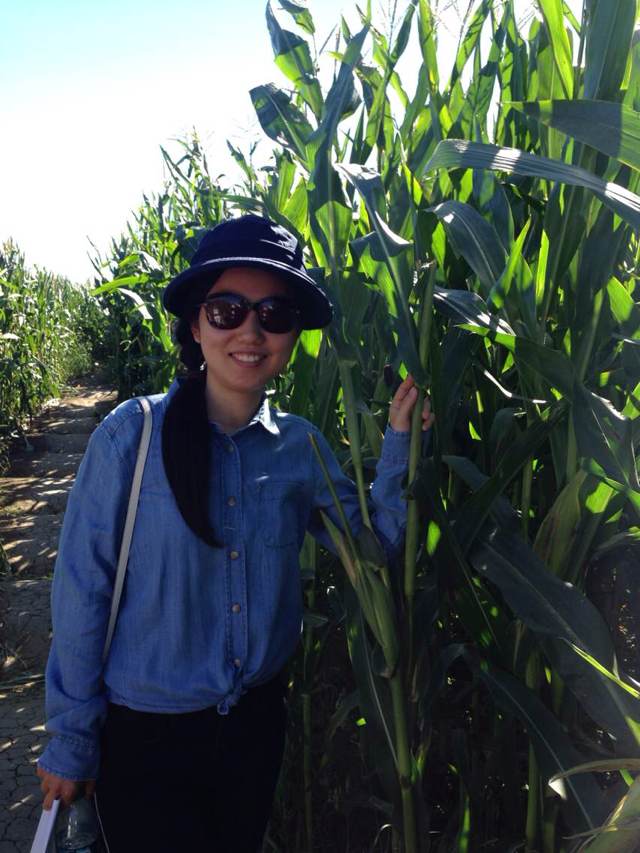
Huajin Chen
Research Interests
- Hydrologic and water quality modeling
- Pesticide exposure and risk assessment
- Uncertainty and sensitivity analysis for environmental models
- Vegetative filter strip modeling
Education
University of California, Davis, USA
2013 - Present
Ph.D. in Hydrologic Sciences
Tongji University, Shanghai, China
2009 – 2013
B.C.E. in Environmental Engineering
Portland State University, Oregon, USA
2012 – 2013
Exchange Student in Environmental Science and Management
Professional Membership
American Geophysical Union (AGU), American Chemical Society (ACS)
Publications
2017
Chen, H., Y. Luo, C. Potter, P. Moran, M. Grieneisen, and M. Zhang (2017). Modeling pesticide diuron loading from the San Joaquin watershed into the Sacramento-San Joaquin Delta using SWAT. Water Research 121: 374:385
Chen, H., X. Zhang, C. DeMars, and M. Zhang (2017). Numerical simulation of agricultural sediment and pesticide runoff: RZWQM and PRZM comparison. Hydrological Processes 1-13
Zhan, Y., Y. Luo, X. Deng, H. Chen, M. Grieneisen, X. Shen, L. Zhu, and M. Zhang (2017). Spatiotemporal prediction of continuous daily PM2.5 concentrations across China using a spatially explicit machine learning algorithm. Atmospheric Environment 155: 129-139
2016
Chen, H., M. Grieneisen, and M. Zhang (2016). Predicting pesticide removal efficacy of vegetated filter strips: A meta-regression analysis. Science of the Total Environment 548–549: 122-130
Zhang, Y., C. Xian, H. Chen, M. Grieneisen, J. Liu, and M. Zhang (2016). Spatial interpolation of river channel topography using the shortest temporal distance. Journal of Hydrology 542: 450-462
2015
Yang, W., M. Grieneisen, H. Chen, and M. Zhang (2015). Reduction of crop diversity does not drive insecticide use. Journal of Agricultural Science 7: 1-16
2014
Chen, H., and H. Chang (2014). Response of discharge, TSS, and E. coli to rainfall events in urban, suburban, and rural watersheds. Environmental Science: Processes & Impacts 16: 2313-2324
Presentations & Talks
Oral Presentation
Chen, H., Y. Luo, and M. Zhang (2017). Modeling pesticide loadings from the San Joaquin watershed using SWAT. American Chemical Society National Meeting.
Chen, H., and M. Zhang (2016). Modeling pesticide loadings from the San Joaquin watershed into the Sacramento-San Joaquin Delta using SWAT. America Geophysical Union Fall Meeting.
Bubenheim, D., H. Chen, and M. Zhang (2016). Watershed-scale modeling of land-use and altered environment impacts on aquatic weed growth in the Delta. Biennial Bay-Delta Science Conference.
Chen, H., M. Grieneisen, and M. Zhang (2016). A meta-regression model for predicting the efficacy of vegetated filter strip. Surface-Water Pesticide Collaborative Research Annual Meeting.
Chen, H., Y. Luo, and M. Zhang (2015). Modeling pesticide removal efficacy of vegetated filter strip (VFS). Surface-Water Pesticide Collaborative Research Annual Meeting.
Honors & Awards
University of California, Davis
- Delta Science Fellowship, California Sea Grant
- Summer Graduate Student Researcher Award
- Henry A. Jastro Graduate Research Award
- Hydrologic Sciences Graduate Program Fellowship
Tongji University
- Excellent Bachelor Thesis
- National Encouragement Scholarship
- Scholarship for Excellent Academic Performance
- Hach Environmental Scholarship
Oregon Department of Environmental Quality
- Honor Internship Award
Teaching Experience
University of California, Davis
2017
Guest Speaker, Survey of Hydrologic Sciences
2016
Teaching Assistant and Guest Speaker, GIS and Environmental Modeling
2015
Teaching Assistant, Field Methods in Hydrology
Skills
- Environmental modeling: Soil and Water Assessment Tool (SWAT), Root Zone Water Quality Model (RZWQM), Pesticide Root Zone Model (PRZM), Vegetated Filter Strip Modeling System (VFSMOD), Pesticide Use Risk Evaluation (PURE)
- Spatial analysis: PostGIS and R, ESRI ArcGIS, QGIS
- Statistical analysis: Linear/Nonlinear regression, multivariate analysis, statistical learning
- Programming languages: R, Python, Fortran
- Database system: PostgreSQL, Access
Languages
- English: full professional proficiency
- Chinese: native language